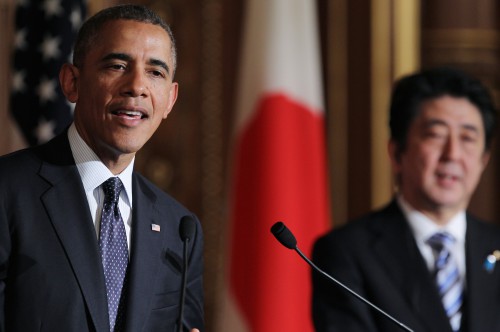
By PHOEBE SOLOMON
Staff Writer
Dissecting the Trans-Pacific Partnership (TPP) is a matter of comprehending decade-long negotiations and understanding why the trade deal is President Obama’s end-of-term goal. The TPP would effectively encompass the economic interests of 12 nations (with the explicit exclusion of China) and would account for 40 percent of America’s Gross Domestic Product (GDP). The TPP would eliminate certain tariffs, as well as usher in a consensus regarding regulatory policies.
Proponents of the trade deal point to the fact that it could cause a dramatic improvement in America’s economy and create more employment opportunities by increasing America’s trade markets. Opponents predictably claim that the trade deal primarily benefits big business interests, by allowing deregulation of corporate interests. Currently, Obama’s greatest adversity stems from fellow Democratic politicians who are resistant to the deal because the economic premise of the deal appears to align with conservative economic practices. Although many aspects of the TPP remain controversial, including the distinct exclusion of China from negotiations, the trade agreement may be an important step in unifying global powers by establishing amity by trade.
The trade negotiations have already drawn Japanese Prime Minister Shinzo Abe to America to deliver an address to Congress, according to NPR. Abe’s address was, in part, dedicated to convincing American politicians of the feasibility of the trade agreement. Japan is included in the trade negotiations.
Arguably the last major trade agreement was under Bill Clinton’s administration in the 1990’s. The North American Free Trade Agreement (NAFTA) essentially underlined trade guidelines between North American countries. 20 years later, American exports to Canada and Mexico represent a greater growth market than exports to any other part of the world. If NAFTA is at all indicative of America’s modern-day success with trade deals, then the TPP would allow a greater market for American goods.
Any trade agreement of this distinction is certain to draw sharp criticism from either party, although if Americans want a large shift in the economy, this trade deal may be the answer. A conservative fiscal policy, one which favors big business, will likely be perceived as a welcome change, especially if it provides more jobs for Americans and expands the American trade market.
Opponents of the deal argue that one of the stipulations of the deal, which would allow for participating countries to challenge their counterparts’ laws if seen as unjust, will diminish America’s standing as a world superpower. America has progressively become less of a world superpower, beginning in the latter half of the 20th century when major U.S. industries began collapsing due to advancing technologies in other nations, such as Germany and Japan. A prime example of this downfall is Detroit, which was once the car-manufacturing juggernaut of the world and is now one of the poorest cities in America. The last time America recorded a federal surplus was in 2001, and America needs a substantial boost to the economy. If these negotiations proceed without American involvement, the trade deal will likely not fold entirely; in fact, U.S. involvement only became prominent in 2009, years after negotiations began. What may happen is that a 21st century deal may be pushed through and may be prosperous for all nations. If this is the case, American isolationism will not have been successful; rather, the deal would have effectively left America behind.
A recession and high unemployment rates during the end of Bush’s administration certainly caused widespread panic and disillusionment in America. Opponents will absolutely point to the fear of the deal killing American trade markets; however, not participating in the trade deal may prove more detrimental than beneficial to the United States. America has adopted the policy of isolationism politically and socially in the past, but the desire to be a player on the world stage coupled with intervention from other nations has always undermined isolationism. Refusing to participate in the trade deal would merely be another form of isolationism and may prove to be an enemy of modern advancement.
Congress should support Obama and the TPP
May 26, 2015

U.S. President Barack Obama (left) attends a press conference with Japanese Prime Minister Shinzo Abe (right) at the Akasaka guesthouse in Tokyo, April 24, 2014. (Junko Kimura-Matsumoto/Jana Press/Zuma Press/MCT)
0
Tags:
Donate to Sword & Shield
$180
$1000
Contributed
Our Goal
Your donation will support the student journalists of University High School. Your contribution will allow us to purchase equipment and cover our annual website hosting costs.
More to Discover













